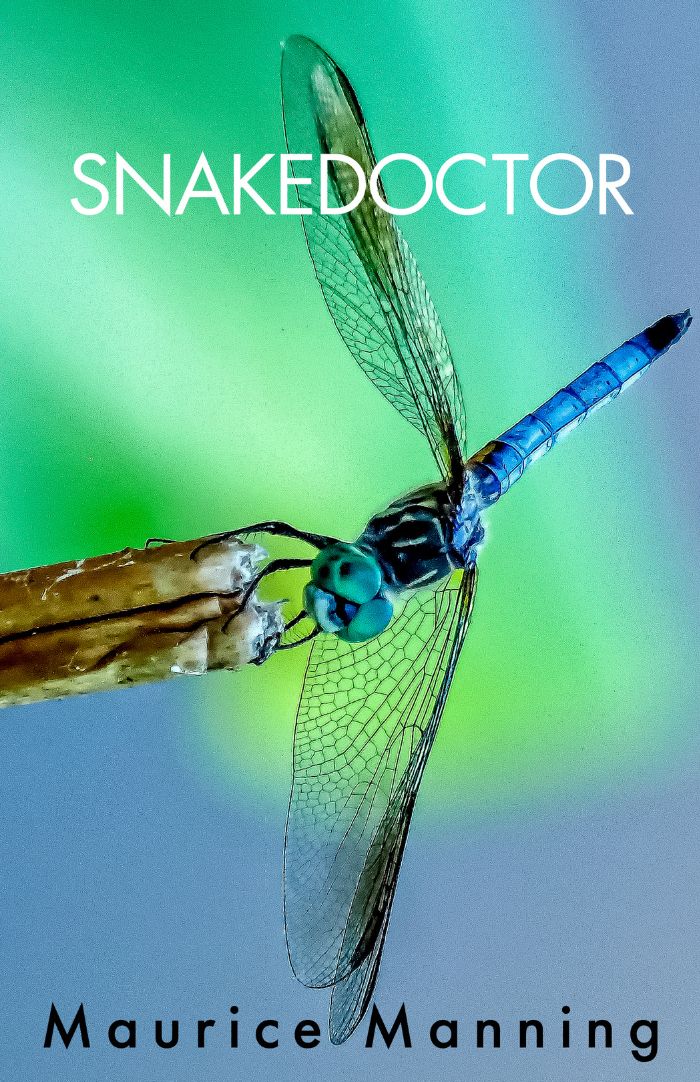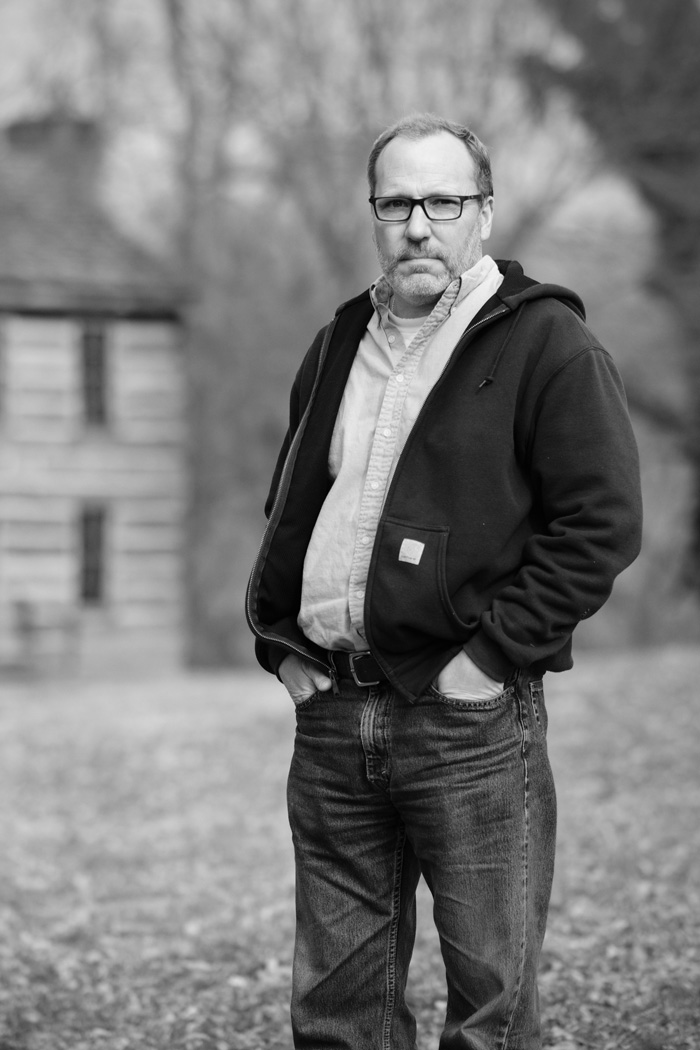
Maurice Manning returns to the Kentucky countryside in his eighth collection, Snakedoctor. Existing between haunting memory and pastoral dreamscape, this quiet collection showcases Manning’s storytelling at its finest. Simple, four-beat lines hold epiphanies—“the barn is just an empty church”—and announce visits from a seven-foot stranger named Mr. True. Here, God is reimagined as a “serious banjo player” who calls the world to sing. And sing Manning does. Through rhyme, blues, and haiku, Snakedoctor trains our ears to hear music in the mundane, to find beauty all around us: in the annotated margins of a well-read book, the flight of a father’s shadow puppet, the yellow centers of daisies. Punctuated by rain’s pitter-patter on a tin washtub, and the ring of loneliness in a farmer’s voice as he calls his cattle home, Snakedoctor is a collection that will leave you wanting to dog-ear its pages. From childhood to fatherhood, church barn to apple orchard, moonshine to moonbeam, we leave these poems understanding Manning’s wish: “I wanted to make a prayer and I
did, / in half sleep after the dream.”
ISBN: 9781556596988
Format: Paperback
Reviews
“Manning’s work is set apart by his belief in the narrative quality of the world—a belief manifested in poetry that conveys self-forgetful wonderment at nature, a sincere longing for transcendence, and a quiet hope that beauty will last. . . . Decisions about the form and content of his poetry aren’t merely aesthetic—the aesthetic implies the ethical. When he flirts with and then rejects Wright’s free verse style, refusing ‘to leave the sense of meaning / behind,’ he’s ultimately rejecting the ethic of the unmediated self and clinging instead to his familial, cultural, and spiritual heritage. He’s embracing an ethic of citizenship.”—Timothy Kleiser, Literary Matters
“There’s something Taoist about Maurice Manning. Close your eyes and he’s wandering around the 6th Century BCE landlocked Henan province instead of the Twenty-first Century Kentucky countryside, philosophizing about love, time, art, remembering poignant folk stories about moonshiners, his father and grandfather, all in the context of lush and lonely rural Kentucky, musing, generally, about existence and how we fit in.”—Charles Rammelkamp, The Lake
